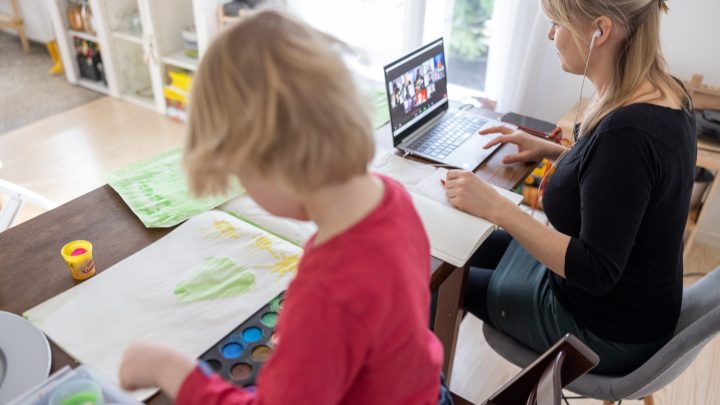
What keeps economists up at night?

This week, economists, central bankers and the like are flocking to Jackson Hole, Wyoming, where they’ll be opting for jeans instead of suits and discussing the looming economic issues of the day at the Federal Reserve Bank of Kansas City’s annual symposium.
This year, they’ll be taking a closer look at “Structural Shifts in the Global Economy.” But most of us won’t get the luxury of 70-degree weather and a picturesque mountain view to ponder life’s big economic questions.
So, for the economists who may have to tune in to a virtual campfire instead of roasting marshmallows with Fed Chairman Jay Powell, we thought we’d ask: What are the structural shifts in the economy keeping them up at night?
University of Houston economist Dietrich Vollrath may wish he was staring at the Grand Tetons, but while he’s trying to fall asleep, he thinks about a population that’s growing too slowly and is aging.
“Neither of those are just kind of like bad things by themselves, but they have these very kind of deep effects on the structure of what’s demanded in the economy,” he said.
Demands for more nursing home staff, for example, where there are already shortages.
Ayse Imrohoroglu with the University of Southern California said she’s curious about how the typical workweek is evolving.
“The pandemic taught us that a lot of people liked working from home, but it’s more than just working from home,” she said. “I think the regular 8-to-5 schedules we used to have are really super hard for families.”
She said that’s especially true for people with children or caring for elderly parents.
But remote work has also stopped the decadeslong trend of people moving to cities near those working similar jobs, according to V.V. Chari with the University of Minnesota.
“Being close to each other allows for occasional random interactions, which promote further ideas, which promote cooperation,” he said.
AI will present another shift, Chari added, which could be akin to the harnessing of electricity in the 19th century. “Which fundamentally changed so many aspects of work, so many aspects of our relationships with each other.”
The way we work is evolving as the climate is changing, as well. That’s top of mind for economist Tatevik Sekhposyan at Texas A&M University.
“So remote work and climate change, what exactly does that imply about how the U.S. and the world economy will be structured in the future?” she said.
We’re going to see changes both in where we produce things and where we consume them, Sekhposyan added.
There’s a lot happening in the world. Through it all, Marketplace is here for you.
You rely on Marketplace to break down the world’s events and tell you how it affects you in a fact-based, approachable way. We rely on your financial support to keep making that possible.
Your donation today powers the independent journalism that you rely on. For just $5/month, you can help sustain Marketplace so we can keep reporting on the things that matter to you.











